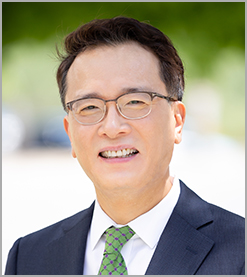김한요 목사
연세 드신 분들에게 따라붙는 이름은 ‘어른’ 아니면 ‘꼰대’인 것 같습니다. 아버지의 맘에 100% 만족을 주는 아들이 없겠지만, 그때 아들에게 바른 길을 제시하되 잔소리가 아닌 동정과 격려, 그리고 희생의 롤모델을 보여주는 존경의 대상이 ‘어른’이라 할 수 있습니다. 그러나, 아들의 흠이 발견되는 순간 여과 없이 비판을 쏟아내고, 나의 시절에는 소위 ‘라떼’는 있을 수 없는 일이라고 모멸감을 주는 어이없는 표정으로 자라나는 아들을 짓누르고, 충고한다지만, 현실성이 결여된 추궁을 하는 아버지는 ‘꼰대’일 것입니다. 오늘 추수감사절을 맞이하며 어른과 꼰대의 구별 법은 굳이 말하자면 그들의 말에 감사가 있는지 없는지로 가려질 것 같습니다.
저도 나이가 들어가면서 이제는 선배보다 후배가 더 많아진 현역 목사로 어쩔 수 없이 꼰대의 모습에서 벗어날 수 없는 것 같습니다. 얼마 전 우리 목회자들을 모아 놓고, 지난 10년 동안 이렇게 화를 낸 적이 없는데, 작심하고 후배 목회자들을 야단을 쳤습니다. 그 이후 목회자들에게 너무한 것은 아닌지, 소위 꼰대 짓을 한 것이 아닌지 돌아보게 됩니다. 다행히 후배들이 더 어른스럽게 야단을 받아주어서 선배의 면을 세워주었습니다.
최근 어느 원로 목사님의 소천 소식을 지면에서 대했습니다. 그때 ‘어른이 사라졌다’는 표현을 기자가 썼는데, 맘에 와닿는 메시지였습니다. 가정에만 어른이 필요한 것이 아니라, 교계에도 어른이 필요합니다. 어렵고 힘든 일을 만났을 때, 길을 보여주시는 혜안의 어른이 너무도 절실히 필요합니다. 아무것도 모르던 30살에 매사추세츠주 앰허스트의 학원 목회에 뛰어든 저는 주위에 한인교회도 없는, 즉 ‘어른’이 없는 지역에서 목회를 시작 했습니다. 소위 박사 공부하는 똑똑한 학생들과 2세들을 대상으로 목회하면서 설교를 어떻게 하는지, 심방은 어떻게 하는지, 아는 것이 하나도 없는 저에게는 하루하루가 지뢰밭을 걷는 심정이었습니다. 마침 예배 드리던 미국 교회의 나이 지긋한 담임목사님께 찾아가 목회의 고민을 털어놓곤 했는데, 그때마다 저에게 감사할 목회 현장을 자꾸 말해 보라는 말씀에 억지로 감사 조건을 찾다가 저절로 치유와 위로를 얻었던 기억이 있습니다. 지금도 그 목사님이 너무 고마워 우리 아들의 이름을 그 목사님의 이름을 본떠 짓기도 했습니다.
어른이 되어 가는가? 꼰대가 되어 가는가? 나이가 들면서 우리는 항상 이런 기로점에 서게 될 것입니다. 그때 어쩔 수 없이 뒷방 노인이 되겠지만, 후배들의 입장에서 자주 생각해 보고, 뒤쳐지지 않도록 책 한권 더 읽고, 잔소리 보단, 밥 한번 더 사주며 격려해 주다 보면, 감사할 것이 더 많아지는 ‘어른’으로 아름답게 나이 먹을 수 있지 않을까 싶습니다.
Grown-up and GonDae (Boomer, Old Timer, et al.)
Rev. Bryan Kim
Our elderly have been termed as either ‘seniors’ or ‘old-fashioned.'(“GonDae”) While we may hope to find that son who satisfies his father 100%, the father seeks to guide his son along the proper path with empathy and encouragement, even at the risk of sounding like he is nagging. It is the “adult” who ought to set the respectable example as a self-sacrificing role model. However, oftentimes the father, discovering his son’s flaws, spews criticism with tongue in cheek. Saying such things as, “You know, in my day” in a mocking tone and with a condescending expression. He means to offer fatherly advice, but the situation resembles more of an interrogation from an old “nitpicker”. As we enter into the Thanksgiving holidays, the way to distinguish between an adult and a “boomer” might be whether or not there is gratitude nuanced in their words.
As I age, and continue to actively serve as a pastor, now with more subordinate juniors than seniors, I find myself inevitably unable to disconnect myself from appearing as a “Old timer”. Recently, I gathered our pastors, and for the first time in 10 years, I relentlessly scolded the junior pastors. Since then, I’ve been reflecting on whether I was too harsh on the pastors, and wonder if I became the so-called “crabby old-fashioned man”. Fortunately, the juniors handled the scolding with maturity, letting us seniors keep face.
I recently came across the news of the passing of a senior pastor emeritus. The journalist used the expression, “the aged has faded away” and the message left quite the impression. The need for such mature senior members is not only in the family but also in the religious community. When facing difficulties and challenges, there is a desperate need for the guidance and the insight of a compassionate and mature adult. At an ignorant age of 30, I entered into ministry at a church in Amherst, Massachusetts. I began in ministry with no Korean churches around in the area, let alone the “elderly”. I started ministry targeting the intelligent students studying for their doctorates and the 2nd-generation children of immigrants. I felt like I was walking through a minefield every day, not knowing anything about how to preach or visitation counseling. Thus, I went to an aged senior pastor in the borrowed American church to share my troubles and concerns about ministry. He would always encourage me to find something to be thankful for in the midst of challenges. Forcing myself to focus on what I was grateful for, I recall how I inadvertently found healing and comfort. I still remember those moments, and being so grateful to that pastor, I even named my son after him.
Are we becoming older or are we becoming “old geezers?” As we age, we will inevitably find ourselves at these crossroads. When that time comes, we may reluctantly become the “out-dated” elderly hasbeen, but by repeatedly considering things from their perspective, staying updated with one more book, offering encouragement rather than nagging, and treating them to another meal, we may become the ‘adult’ who has many more reasons to be thankful. Perhaps, in this way, we can all grow old gracefully

